9 questions about revaccination against COVID-19
Who is contraindicated a second vaccine, the level of antibodies should be taken into account, which vaccine to use
Six months have passed for those Tatarstan residents who were one of the first to obediently receive a vaccine against coronavirus. Meanwhile, the Russian Ministry of Health Care recommends receiving a vaccine once in six months during the periods when the epidemic is on the rise. This period goes on, which means the “pioneers” should do this again. Realnoe Vremya asks nine most frequently asked questions about revaccination, while doctors of the Urban Clinical Hospital No. 16, head of Therapy Unit Natalia Ukhova and epidemiologist Yuliya Kazakova answer them.
- In the current situation when there is still a way to herd immunity and there is a shortage of vaccines for everybody, do health care workers approve of revaccination?
Natalia Ukhova: At this moment, 23% of the population going to our hospital have been vaccinated. Our opinion is that it is necessary to vaccinate those who haven’t yet received the first vaccine. But we have already begun revaccination too. The number of such people is low at the moment, about ten people. However, when they come, we don’t oppose their desire. - Which vaccine do you recommend receiving if the person received the Sputnik V earlier?
Natalia Ukhova: We recommend the Sputnik Light. We have it in stock now. The republic received around 17,000 doses of this vaccine, our hospital received about 300 doses. We use the Sputnik Light for revaccination and for those who had coronavirus and have a specific level of antibodies.
At the moment we aren’t using any other vaccines for revaccination besides this one.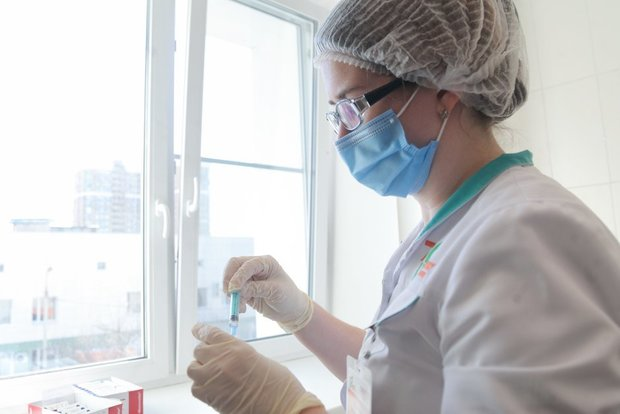
Yuliya Kazakova: It depends on a person’s age and individual peculiarities which vaccine to use. For instance, the CoviVac and Sputnik Light have an age limit, under 60. If an older person comes for revaccination, we cannot recommend these two vaccines. One of another two vaccines should be chosen, here it depends on the vaccine that was used earlier and the patient’s own desire. Everything is individual after a consultation with a doctor. - Should one consider the level of antibodies or it is anyway necessary to receive a vaccine six months after COVID-19 or vaccination?
Natalia Ukhova: Some are following their level of antibodies once a month or once in a few months. Somebody doesn’t ask this question and comes for vaccination six months after the disease — the number of such people is big enough. In any case we don’t insist on finding out the level of antibodies. If a person decided to receive a vaccine, we will vaccinate him or her regardless of the level of antibodies. If a person doesn’t want to receive a vaccine explaining this by the fact of a high level of antibodies, a lot of people come with 300, 600 and 1,000, we talk and postpone vaccination individually, depending on the level. We offer somebody a consultation in a month, somebody is given three months with a result of the test for antibodies. So if a patient doesn’t want to receive vaccine with a high level of antibodies, we don’t press on him or her.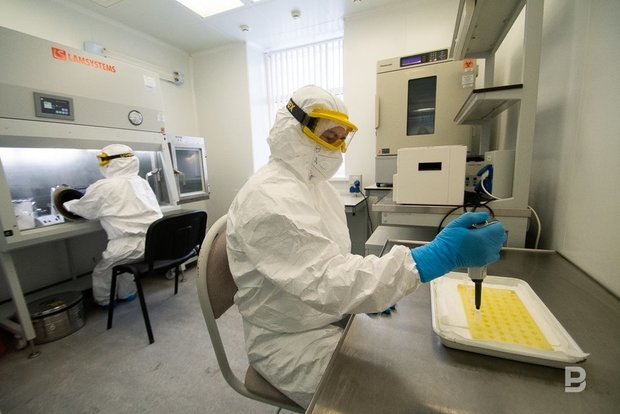
- Have you ever seen patients with a high level of antibodies more than six months after COVID-19? And what does it depend on?
Natalia Ukhova: Yes, there can be a high level of antibodies even six months later. But it is unknown at the moment what it depends on. Antibodies in some patients who had a severe case of coronavirus disappear very quickly from the peripheral blood. Some patients who had COVID-19 out of hospital, mildly, and their antibodies level is high and remains high. So everything is individual. The infection is new, so we also see and make certain conclusions for ourselves. - What are the contraindications to revaccination?
Natalia Ukhova: The Ministry of Health Care doesn’t recommend those who had a severe allergy to some of the components of a vaccine against coronavirus or had a severe allergic reaction to a vaccine that was received to receive a vaccine. In general if a person has had serious allergies in medical history, we won’t prescribe him vaccination. Such a person will likely have a medical exemption after a consultation with an allergist.
A young age (under 18 years) and breastfeeding are other contraindications. Acute viral respiratory infections, aggravation of chronic diseases are other temporary contraindications. In general the contraindications to revaccionation are the same as in the first vaccine. The only difference is that those who already received a vaccine in winter already experienced a specific drug. And if a patient already tolerated the first vaccination well, it means there won’t be contraindications to the second one.
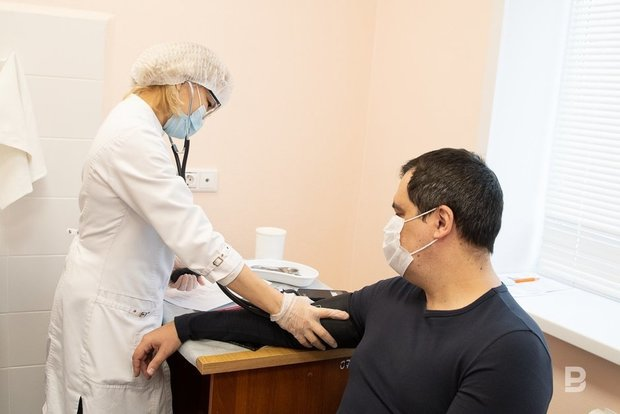
As for patients with atypical bronchial asthma, which is characteristic of young people, we have vaccinated such a category of citizens. They, in contrast, always willingly receive a vaccine, considering the chronic diseases, which is moreover related to the lungs. - Is it necessary to wait for six months after vaccination or can one receive a vaccine again earlier if a person wants to raise the level of antibodies?
Natalia Ukhova: One should anyway wait for six months. But there can always be exceptions. A patient who was immunised with the Sputnik V turned to us, and he was not found antibodies after vaccination. In the end we decided to meet him halfway and vaccinate him with the EpiVacCorona. - A reaction to the first vaccine often pushes people away from revaccination, for instance, a fever. If a person received the Sputnik for the first time and he had a manifested reaction, will he be offered another vaccine for revaccination?
Natalia Ukhova: He will likely be offered the Sputnik Light. And it is forecasted that the reaction to the injection of this vaccine can not be so expressive. If after vaccination with the Sputnik V a person refuses to be revaccinated with the vaccine of this manufacturer, he will be offered the EpiVacCorona or CoviVac. We have all these vaccines. In any case the problem will be solved individually. There is always an alternative.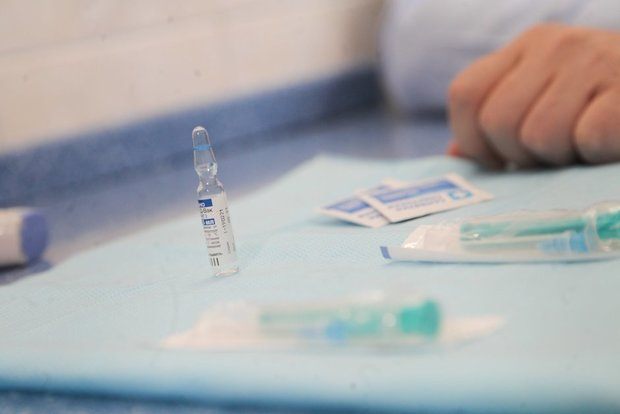
- According to your observations, what does a reaction to the vaccine depend on and why do some people have a fever, while others feel great?
Natalia Ukhova: Everything is individual. A possible high temperature doesn’t really depend on age. We see this reaction almost in all ages. Some know they have a reaction to any vaccine, including against the flu. In such a case, many plan vaccination on Friday to be able to lie in bed at the weekend. - What if a woman got pregnant six months after the first vaccine? Will she be recommended to receive a vaccine for the second time? If a person developed a serious diagnosis in six months?
Yuliya Kazakova: Everything will be decided individually, depending on the level of antibodies, chronic diseases and other indicators. At the moment, indeed methodical recommendations were used, and now we can vaccinate pregnant women. But we don’t have vaccinated pregnant women in our hospital. Now we are actively vaccinating the environment of pregnant women, family members so that they aren’t a source of infection.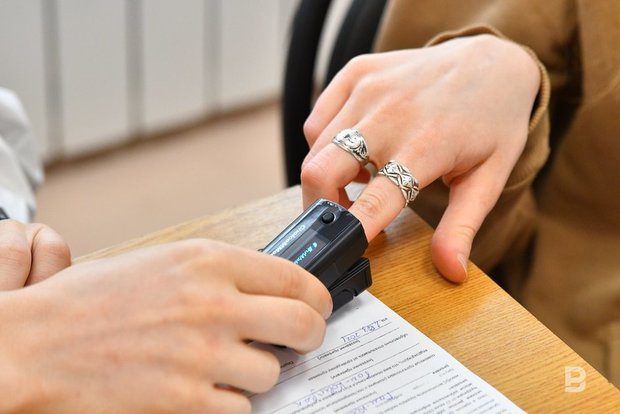
Natalia Ukhova: As for people who fell ill, neither the first nor second vaccine is administered at the peak of the disease. This is done only in remission. If a patient fell sick with cancer, oncologists usually write a recommendation when vaccination is possible. Specialists try to give recommendations in records so that we can go by them. They indicate at times that a patient is on chemo and vaccination is put off and considered in six months. This helps us make decisions.